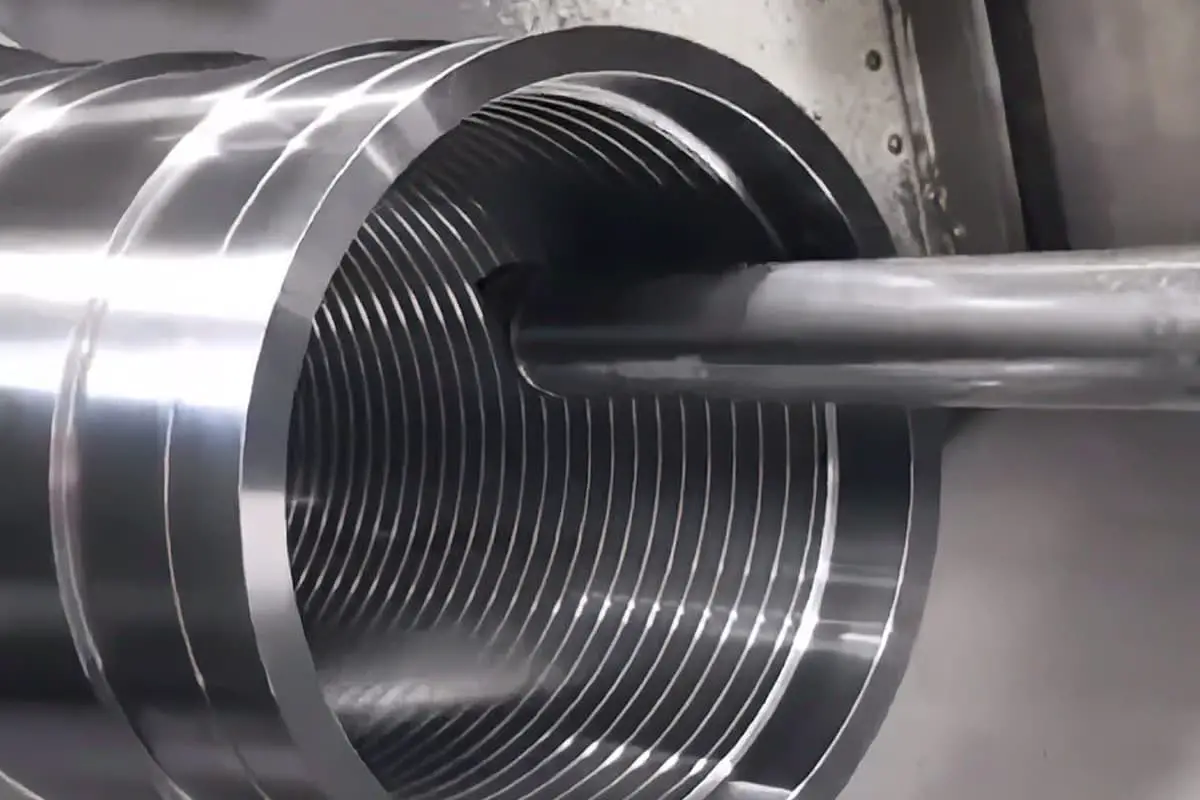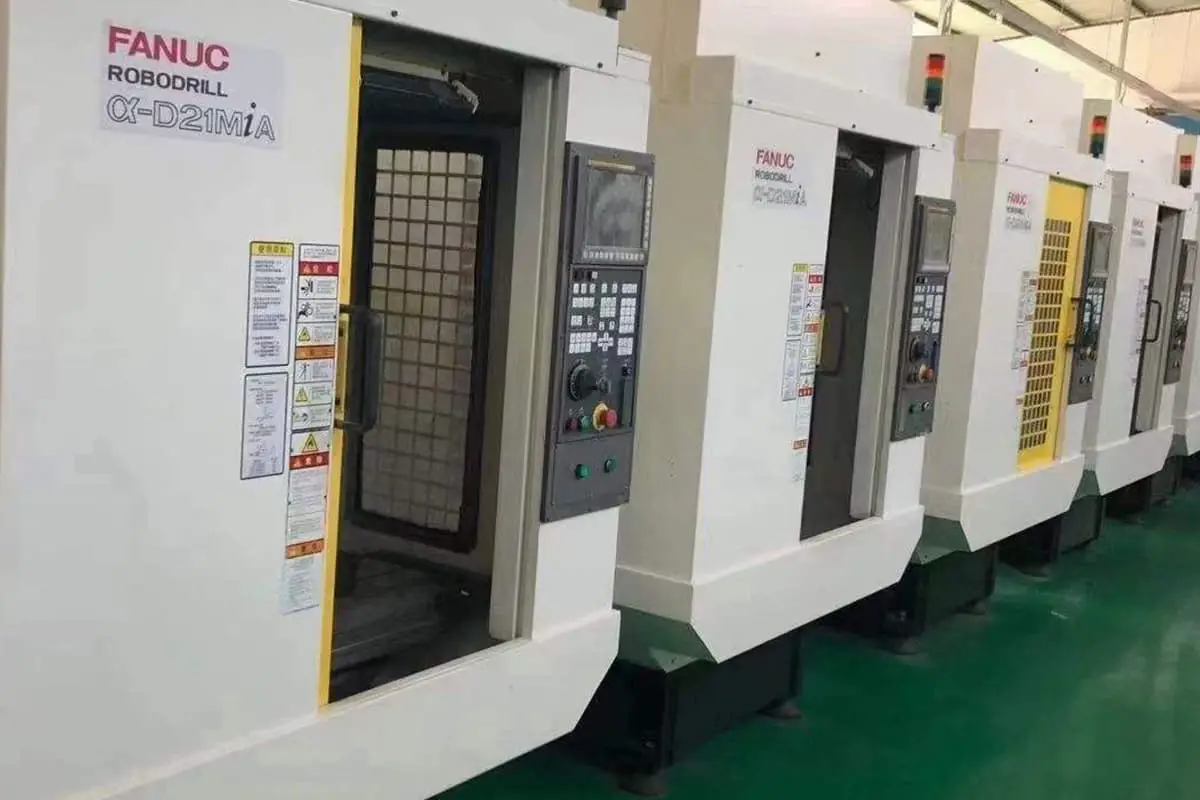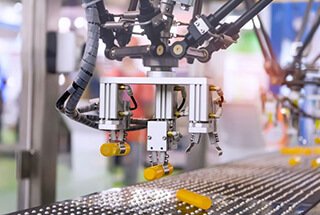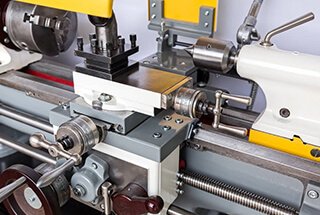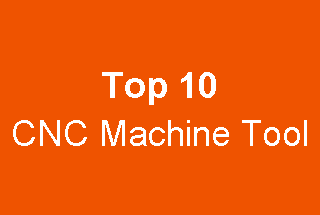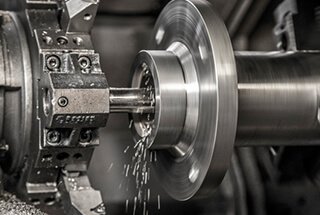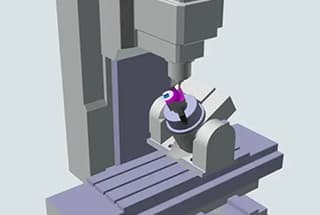
Ever wondered how the machines that shape our world are made? This article explores the top CNC lathe manufacturers, revealing the secrets behind their cutting-edge technology and global impact. Discover the innovations driving modern manufacturing and learn how these companies are revolutionizing industries.
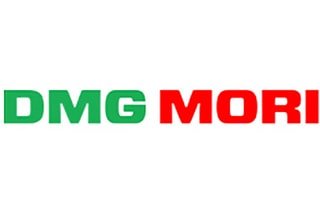

Founded in 1919, Yamazaki Mazak has established itself as a global leader in the machine tool industry, originating from Japan. The company excels in providing comprehensive solutions for multi-tasking machining, five-axis processing, milling, turning, CNC systems, and automation, leveraging cutting-edge technologies to address complex manufacturing challenges.
As a pioneer in international expansion among Japanese machine tool manufacturers, Yamazaki Mazak initiated its global presence by establishing its first overseas factory in the United States in 1974. The company subsequently expanded its footprint with strategic production bases in key markets such as the UK, Singapore, and China, distinguishing itself as one of the few in the sector to implement a truly global production system.
Mazak’s commitment to globalization extends beyond manufacturing, encompassing a worldwide network of production facilities, technical centers, and customer support hubs. This global infrastructure enables the company to deliver high-quality products, cutting-edge technological innovations, and responsive support, contributing significantly to the advancement of global manufacturing capabilities and fostering customer success across diverse industries.
In response to contemporary manufacturing challenges, including labor shortages and the demand for increased productivity, Mazak is accelerating its innovation pipeline. The company is at the forefront of developing and integrating advanced technologies such as Internet of Things (IoT), Artificial Intelligence (AI), and machine learning into its product offerings. These innovations are driving the creation of smart, connected machines and systems that enable seamless automation, real-time monitoring, predictive maintenance, and data-driven decision-making.
Mazak’s latest solutions focus on enhancing overall equipment effectiveness (OEE), reducing setup times, and optimizing machining processes. The company’s SMOOTH Technology platform, for instance, integrates advanced CNC hardware, intuitive software interfaces, and smart factory solutions to streamline production workflows and improve operational efficiency.
Furthermore, Mazak is pioneering the concept of hybrid multi-tasking machines, which combine additive manufacturing capabilities with traditional subtractive processes. This approach enables manufacturers to produce complex geometries, reduce material waste, and decrease production times for certain components.
As the manufacturing landscape evolves towards Industry 4.0 and beyond, Yamazaki Mazak remains committed to its mission of enriching society and enhancing lives through innovative machine tool solutions. By continuously pushing the boundaries of technology and providing comprehensive support to its global customer base, Mazak is not just adapting to the changing industrial landscape but actively shaping the future of manufacturing.
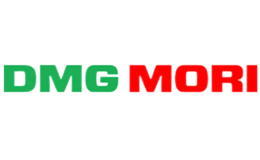
DMG MORI, a global leader in CNC machine tool manufacturing, emerged from the 2013 strategic merger of Japan’s Mori Seiki (65 years of expertise) and Germany’s DMG (143 years of excellence). This alliance exemplifies the synergy between Japanese innovation and German precision engineering, driving cutting-edge advancements in machine tool technology.
Renowned for its commitment to innovation, DMG MORI continually shapes industry trends through its forward-thinking approach. The company’s core competency lies in iterative enhancement of its product portfolio and services, consistently setting new benchmarks in machining technology. Their focus spans from high-speed 5-axis machining centers to multi-tasking turn-mill centers, additive manufacturing solutions, and advanced automation systems.
DMG MORI’s global presence is reinforced by an extensive network of 164 sales and service centers across 76 countries. This infrastructure, supported by approximately 7,400 employees, ensures comprehensive customer support throughout the machine lifecycle. Their integrated approach combines sales, technical services, customer support, professional training, and application engineering, offering a holistic solution to meet diverse manufacturing needs.
At the forefront of Industry 4.0, DMG MORI is driving the digitization revolution in manufacturing. Their digital transformation strategy encompasses:
This digital shift is not merely technological but also cultural, ensuring DMG MORI’s continued growth and excellence in an ever-evolving global landscape. By leveraging data-driven insights and fostering a culture of continuous innovation, DMG MORI is well-positioned to address the complex challenges of modern manufacturing.
The company’s commitment to sustainability is evident in their development of energy-efficient machine designs, optimized coolant management systems, and initiatives to reduce the carbon footprint of their manufacturing processes. This holistic approach to innovation, combining technological advancement with environmental responsibility, solidifies DMG MORI’s position as a pioneer in sustainable manufacturing solutions.
In essence, DMG MORI stands as a testament to the power of international collaboration in advancing machine tool technology. By harmonizing German engineering precision with Japanese innovation culture, the company continues to drive the boundaries of what’s possible in CNC machining, additive manufacturing, and smart factory solutions.

Established in 1923, TRUMPF has evolved from a modest mechanical workshop in Germany into a global leader in industrial machinery, laser technology, and electronic solutions. Renowned for its innovative approach and technological prowess, TRUMPF has made significant advancements in CNC sheet metal processing, medical equipment manufacturing, and cutting-edge industrial tools development.
At the dawn of the new millennium, TRUMPF expanded its global footprint by establishing TRUMPF (China) Co., Ltd. in 2000. This strategic move focuses primarily on the production of state-of-the-art flatbed laser cutting machines and accessories, with plans to diversify into CNC punching and bending machines. This expansion showcases TRUMPF’s commitment to meeting the growing demand for high-precision metal fabrication solutions in the Asian market.
TRUMPF’s legacy of innovation spans over nine decades in machine tool production, consistently pushing the boundaries in laser technology, electronic applications, and medical technology. This relentless pursuit of excellence is reflected in its financial performance, with the 2022/23 fiscal year recording a substantial revenue of 5,364.5 million euros, driven by a skilled workforce exceeding 18,000 employees globally.
At its core, TRUMPF is dedicated to shaping the future of manufacturing through Industry 4.0 principles. The company champions the seamless integration of digital technologies in production processes, striving for enhanced efficiency, unparalleled precision, and forward-thinking solutions. TRUMPF’s vision extends beyond profit margins; it aims to create sustainable and efficient manufacturing ecosystems where advanced technology and innovation coalesce harmoniously.
TRUMPF’s product portfolio encompasses a wide range of metal fabrication solutions, including:
These offerings are complemented by TRUMPF’s commitment to sustainability, evident in their energy-efficient machine designs and efforts to reduce the carbon footprint of manufacturing processes.
In essence, TRUMPF embodies a legacy of innovation, an unwavering commitment to quality, and a visionary approach to a technologically empowered future. As it stands today, TRUMPF is not merely a company; it serves as a beacon of progress in the industrial world, continually driving advancements in metal fabrication and manufacturing technologies.
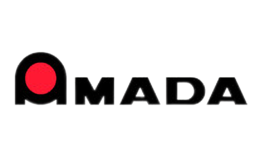
Amada Co., Ltd., founded in 1946 in Japan, has emerged as a global leader in metalworking machinery manufacturing, exemplifying innovation and precision in the industry. Renowned for its expertise in sheet metal processing technologies, Amada’s comprehensive portfolio includes advanced CNC turret punch presses, high-precision press brakes, high-speed shears, and cutting-edge fiber laser cutting machines, addressing diverse industrial requirements across various sectors worldwide.
As a multinational corporation, Amada’s journey is characterized by its unwavering commitment to technological excellence and an integrated approach to business operations. The company transcends traditional manufacturing roles, operating as a complete ecosystem encompassing research and development, innovative design, state-of-the-art production, and comprehensive after-sales support. Amada’s growth trajectory is reflected in its status as a publicly listed group company, showcasing a robust organizational structure and a global marketing network that resonates with its expansive and diverse clientele.
The company’s global footprint is substantial, with operations in over 100 countries, supported by 83 strategically positioned subsidiaries. This extensive network underscores the widespread appeal of Amada’s machinery, which is renowned for its versatility, cutting-edge technology, and superior performance metrics. The company’s pioneering venture into intelligent sheet metal processing during the 1990s revolutionized the industry, establishing new benchmarks in smart manufacturing and paving the way for Industry 4.0 integration.
Amada’s distinctive edge lies in its synergy of sophisticated engineering design, unparalleled reliability, eco-conscious operations, and the quantifiable benefits it delivers to end-users. The company’s dedication to automation and technological advancement simplifies complex metalworking processes, ensuring Amada’s machines are the preferred choice for fabricators and manufacturers globally. This commercial success is reflected in Amada’s impressive annual turnover of 200 billion yen, underlining its significant market share and financial stability.
Headquartered in Isehara-shi, Kanagawa, Japan, Amada Co., Ltd. distinguishes itself as a comprehensive solution provider in the metalworking sector. With a consolidated workforce of 8,958 skilled professionals as of March 31, 2023, the company’s commitment extends beyond manufacturing to driving innovation in metalworking technologies. Amada continually focuses on research and development to anticipate and meet evolving customer needs, emphasizing efficiency, precision, and sustainability in its product offerings.
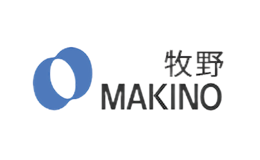
Makino Milling Machine Co., Ltd., founded in 1930 by Tsunezo Makino in Tokyo, has established itself as a global leader in high-precision CNC metalworking machinery. With nearly a century of experience, Makino has consistently pioneered innovative solutions in flexible manufacturing processes, catering to demanding industries such as automotive, aerospace, and mold production.
Headquartered in Tokyo, Makino has expanded its global footprint to include operations in strategic regions like Mainland China, South Korea, and Taiwan. The company’s comprehensive product portfolio encompasses advanced CNC machines, precision grinders, multi-axis machining centers, state-of-the-art EDM systems, and high-performance milling machines.
Makino’s commitment to technological advancement is exemplified by its Tokyo-based R&D center, which has made significant breakthroughs in horizontal machining center technology. This innovation has solidified Makino’s position as a frontrunner in the development of cutting-edge mechanical equipment and integrated manufacturing systems.
The company’s core philosophy prioritizes quality across all operations, from initial product design to after-sales support. Makino’s diverse range of high-precision metal cutting and EDM machinery includes horizontal, vertical, and five-axis machining centers, specialized graphite processing centers, and both wire and sinker EDM machines. These advanced systems are designed to meet the most stringent accuracy requirements and complex geometries demanded by modern manufacturing processes.
As of March 2023, Makino’s financial stability is evident with a reported capital of 21,142 million yen and consolidated sales of 227,985 million yen. The company’s global workforce of 4,692 employees supports its international operations. Makino’s manufacturing capabilities are anchored by state-of-the-art production facilities in Atsugi and Fuji-Katsuyama, complemented by an extensive network of sales and service offices throughout Japan. The company’s global reach extends to key markets including the United States, Germany, Singapore, Korea, China, and India, ensuring comprehensive support for its international clientele.
Makino’s unwavering commitment to innovation, quality, and sustainable manufacturing practices has enabled it to distribute its advanced machining solutions to over 41 countries and regions. This global presence, coupled with its continuous technological advancements, cements Makino’s status as an industry leader in the competitive CNC machinery market, driving precision and efficiency in modern manufacturing processes worldwide.
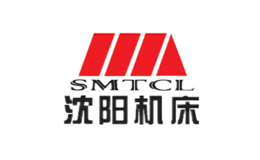
Shenyang Machine Tool, established in the early 1990s with roots tracing back to 1933, stands as a cornerstone in China’s machine tool industry. Formed through the strategic merger of four foundational companies, including the historic Shenyang First Machine Tool Factory, it has secured its position on the Shenzhen Stock Exchange (ticker: 000410).
The company has distinguished itself through the production of a diverse range of high-precision machine tools, renowned for their accuracy and longevity. Their comprehensive portfolio encompasses horizontal lathes, advanced vertical machining centers, and gantry machining centers, all engineered to meet the most stringent quality standards and incorporate cutting-edge technology.
Since 2010, Shenyang Machine Tool has intensified its focus on innovation, particularly in materials science and advanced manufacturing techniques. A prime example is their pioneering use of the LZA4205 microcrystalline alloy in CNC turret production. This high-performance material significantly enhances wear resistance and thermal stability, resulting in improved tool life and machining precision. This commitment to materials innovation has positioned them at the forefront of the industry, offering superior performance and efficiency to their clients.
Beyond manufacturing, Shenyang Machine Tool operates as a comprehensive solutions provider in the machine tool sector. Their holistic approach encompasses the entire lifecycle of SMTCL lathe machine spare parts, from sales to aftermarket support. This includes specialized maintenance services, expert consulting on optimal machine utilization, and in-depth training programs. By offering this end-to-end service, they ensure their customers can maximize the potential of their equipment while minimizing downtime.
A cornerstone of their forward-looking strategy is the development of the Shenyang CNC Machine Tool Industrial Park, an integrated complex comprising nine major enterprises. This initiative represents a paradigm shift in CNC machine tool manufacturing, aiming to create a modern, globally competitive production base. By fostering synergies between various specialized firms, the industrial park is designed to accelerate innovation, streamline supply chains, and enhance overall manufacturing capabilities. Through this visionary project, Shenyang Machine Tool is not only bolstering its market position but also actively shaping the future trajectory of the global machine tool industry.
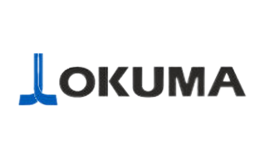
Founded in 1918, Okuma Corporation stands as a venerable institution in Japan’s manufacturing landscape, specializing in the integration of advanced machine tools and sophisticated control devices. As a pioneer in CNC systems and machine tools, Okuma’s century-long journey exemplifies excellence in research, production, and global sales.
Renowned for their high-precision CNC lathes and multi-axis machining centers, Okuma’s distinctive edge lies in its proprietary OSP (Okuma Sampling Path) CNC control systems. These state-of-the-art products are celebrated for their exceptional structural rigidity, process efficiency, micron-level accuracy, long-term reliability, and intuitive user interfaces. Okuma’s global presence is reinforced by strategic international bases, including Okuma America, Okuma Europe, and subsidiaries across Asia-Pacific, ensuring responsive support and localized innovation.
Tracing its roots to 1898, Okuma was formally established in 1918. Headquartered in Aichi Prefecture, Japan, under the stewardship of CEO Yoshiharu Hanaki, the company boasts a consolidated workforce of 2,908 employees (as of April 2009) and a robust capital foundation of 18 billion yen.
Okuma’s innovative spirit is epitomized by groundbreaking developments such as the “Thermo-Friendly Concept,” which incorporates advanced thermal deformation compensation, and the “Collision Avoidance System,” leveraging real-time 3D modeling to prevent machine crashes. These technologies push the boundaries of machining precision and operational safety beyond industry norms.
As an integrated machine tool solutions provider, Okuma is committed to manufacturing products of ever-increasing quality and sophistication to meet the evolving demands of a global clientele. This commitment extends beyond mere technical excellence to fostering a deeper appreciation for the art and science of advanced manufacturing, resonating with the creative spirit of engineers and machinists alike.
Okuma’s approach to sustainability is holistic, focusing on the extended lifespans and high recyclability of their machine tools. By designing for durability and implementing energy-efficient technologies, Okuma aligns its operations with sustainable development principles. This strategic focus on minimizing environmental impact while maximizing productivity and product quality underscores Okuma’s dual commitment to technological innovation and environmental stewardship, positioning the company as a leader in responsible manufacturing for the 21st century.

Founded in 1867 in Germany, EMAG Group has established itself as a pioneer and global leader in inverted vertical CNC machine tools. Through unwavering commitment to high-tech R&D, precision manufacturing, and strategic sales, EMAG has become a crucial player across diverse industries, including automotive, aerospace, renewable energy, and oil exploration.
Headquartered near Stuttgart in Salach, Germany, EMAG Group is renowned for its specialized machine tools and advanced production systems engineered for processing disc-shaped, shaft-type, and cubic components. The company’s innovative spirit is exemplified by its inverted vertical lathes and multifunctional production centers, which leverage cutting-edge technologies such as integrated automation and Industry 4.0 principles.
EMAG’s expansion into China began strategically with the establishment of a Shanghai representative office in 2003, followed by the creation of EMAG Machine Tools (Taicang) Co., Ltd. in 2004, now operating as EMAG (China) Machinery Co., Ltd. Taicang Branch. This subsidiary, boasting a 10,000 m² state-of-the-art facility and a skilled workforce of 170 employees, achieved an impressive sales figure of €200 million in 2017. EMAG’s commitment to quality is evident in its systematic training programs for Chinese employees, modern manufacturing facilities equipped with advanced CNC systems, and rigorous quality control measures, ensuring the production of superior machine tools that meet international standards.
EMAG’s machines and systems are meticulously designed in Germany, focusing on enhancing operational efficiency and reducing overall production costs. This is exemplified by the inverted vertical machine tools and fully automated integrated systems, which significantly reduce workpiece loading times and machining cycles through innovative chip management and optimized tool paths. For Chinese customers, EMAG’s dedication to high quality and efficiency is particularly compelling, offering a competitive edge in the rapidly evolving manufacturing landscape. Moreover, the ergonomically designed systems prioritize operator comfort and safety, featuring intuitive interfaces, reduced noise levels, and enhanced accessibility, thus improving workplace conditions and productivity.
EMAG Group’s market leadership is underpinned by relentless innovation, meticulous engineering, and a holistic approach to manufacturing excellence. This is achieved through refined production processes, encompassing advanced machining techniques, precision measurement technologies, and adaptive control systems. The company’s strong emphasis on continuous employee training and investment in state-of-the-art facilities, including simulation software and prototyping capabilities, ensures that EMAG remains at the forefront of machine tool technology, delivering high-quality products that consistently exceed industry standards and customer expectations.
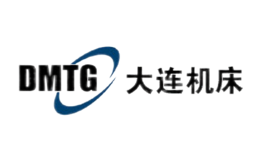
Dalian Machine Tool Group Co., Ltd., now operating as General Technology Group Dalian Machine Tool Corporation under China General Technology Group, has been at the forefront of CNC machine tool innovation since its establishment in 1935. The company has evolved into a leading developer and manufacturer of advanced CNC machine tools, flexible manufacturing systems, and comprehensive automation technologies.
With two state-of-the-art production bases spanning over 1.1 million square meters in Dalian’s Double D Port and Wafangdian, the company plays a pivotal role in revitalizing Northeast China’s industrial base. These facilities have solidified its position as one of the nation’s premier comprehensive CNC machine tool and component manufacturers.
General Technology Dalian Machine Tool’s product portfolio encompasses cutting-edge solutions, including:
The company’s commitment to quality has established its domestic leadership, with several products meeting international standards. Its significant R&D initiatives contribute substantially to China’s national machine tool innovation ecosystem, focusing on areas such as:
Over its 80-year history, the company has supplied more than 500,000 machine tools to diverse industries across 100+ countries and regions. This global reach has significantly bolstered China’s manufacturing capabilities and international competitiveness.
Following a strategic reorganization in April 2019, General Technology Dalian Machine Tool has sharpened its focus on core product lines, resulting in a nearly fourfold increase in key production and operational metrics. The company’s dedication to reform and innovation drives its pursuit of high-quality development, aiming to become a world-class machine tool enterprise with global competitiveness.
By leveraging advanced technologies such as AI, 5G, and digital twins in its product development and manufacturing processes, General Technology Dalian Machine Tool is poised to play a crucial role in China’s Industry 4.0 transformation. The company’s ongoing efforts in developing smart, connected, and highly efficient machining solutions are set to further elevate China’s position in the global machine tool industry, contributing significantly to the country’s manufacturing upgrade and technological self-reliance initiatives.
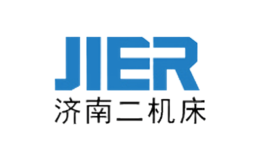
Founded in 1937, Jinan Second Machine Tool Group Co., Ltd. has established itself as a global leader in the manufacturing of advanced forging equipment, high-precision CNC metal cutting machine tools, and heavy-duty industrial machinery. Spanning an impressive 1.23 million square meters and employing over 5,000 skilled professionals, the company has etched its name in China’s industrial history through groundbreaking innovations. Notable milestones include the development of China’s first gantry planer in 1953 and the inaugural mechanical press in 1955, earning the company prestigious titles such as the “Birthplace of the Gantry Planer” and “Cradle of the Mechanical Press.
As a paragon of engineering excellence, Jinan Second Machine Tool Group has innovated and produced more than 600 types of cutting-edge equipment, playing a pivotal role in supporting key industries throughout various stages of China’s economic evolution. Their comprehensive product portfolio encompasses state-of-the-art forging equipment, high-performance CNC metal cutting machine tools, advanced automation systems, precision casting machinery, and sophisticated CNC cutting solutions. These products cater to critical sectors including automotive manufacturing, aerospace engineering, rail transit systems, energy production, shipbuilding, metallurgical processes, precision mold making, and construction machinery fabrication.
Recognized as one of the “Top Three CNC Punching Equipment Manufacturers in the World,” this enterprise has not only made substantial contributions to China’s industrial landscape but has also expanded its reach to serve a diverse global clientele across 67 countries and regions. The company’s commitment to innovation and quality has been acknowledged at the highest levels, with the State Council recognizing its outstanding contributions in the field of major technical equipment development. This accolade further cements Jinan Second Machine Tool Group’s position as a cornerstone of industrial machinery manufacturing and a vanguard of technological advancement in the global manufacturing sector.
When researching top CNC lathe manufacturers in China, I realized that selecting the right manufacturer is critical for business success. Here are the key factors I considered when choosing the optimal CNC lathe manufacturer for my requirements:
The quality of the CNC lathe is paramount when selecting a manufacturer. I sought manufacturers with a proven track record of producing high-precision machines that meet or exceed industry standards. This involved evaluating their use of premium materials (such as high-grade cast iron for bases and hardened, ground ways), implementation of rigorous quality control procedures (including geometric accuracy testing and thermal stability checks), and provision of comprehensive warranties covering both mechanical and electronic components.
I closely examined the technical specifications and performance capabilities of each manufacturer’s CNC lathes. Key factors included:
These specifications directly impact machining precision, productivity, and the range of parts that can be produced.
While price is a significant factor, I focused on the total cost of ownership rather than just the initial purchase price. This comprehensive approach included evaluating:
I sought manufacturers offering competitive pricing without compromising on quality or long-term reliability.
Timely delivery is crucial, especially for urgent production needs. I assessed manufacturers based on:
Additionally, I considered their flexibility in accommodating rush orders or changes in specifications during the manufacturing process.
Excellent customer service and technical support are vital for maximizing machine uptime and productivity. I prioritized manufacturers offering:
A diverse product range allows for selecting a CNC lathe that precisely matches specific manufacturing requirements. I evaluated manufacturers based on:
Additionally, I considered the manufacturer’s commitment to innovation and their roadmap for future product developments.
In conclusion, selecting the ideal CNC lathe manufacturer requires a meticulous evaluation of multiple factors, including quality, performance specifications, total cost of ownership, delivery capabilities, customer support, and product range flexibility. By thoroughly assessing these aspects, I was able to identify the CNC lathe manufacturer best suited to my specific manufacturing needs and long-term business objectives.

